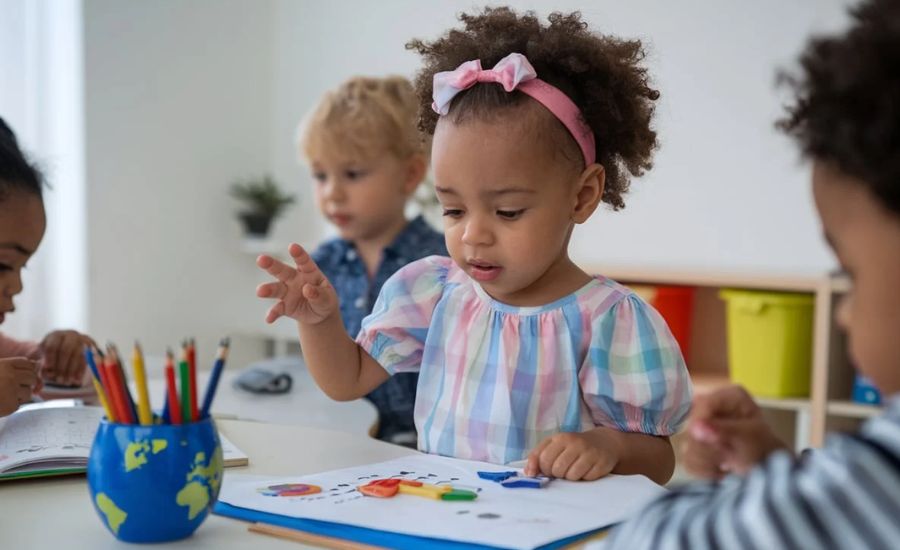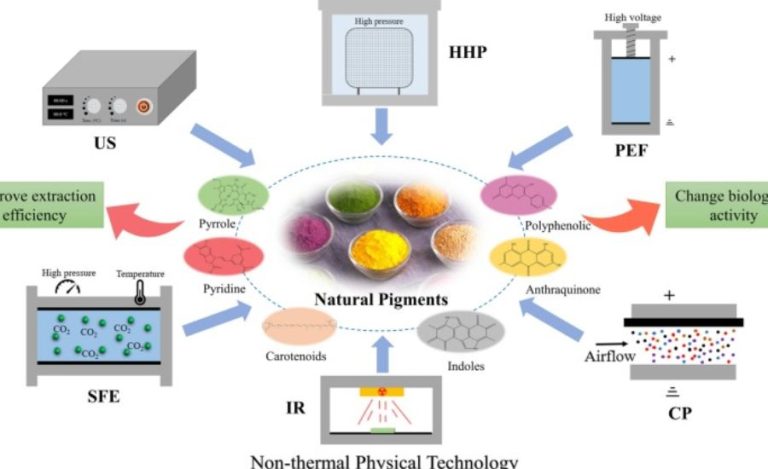Learning The 9 Most Amazing Things 5-Year-Olds Accomplish 2020 Stjcc & More
Introduction to Learning The 9 Most Amazing Things 5-Year-Olds Accomplish 2020 Stjcc
By the age of five, a child’s development reaches a pivotal stage marked by significant physical, cognitive, and emotional progress. This period is crucial as children begin to exhibit growing independence, and their emerging skills and talents serve as the foundation for future development. For parents, caregivers, and educators, having a clear understanding of these milestones is essential for providing appropriate support and encouragement during this transformative phase.
At five years old, children typically achieve a range of developmental milestones that reflect their expanding capabilities. These milestones encompass improvements in motor skills, language development, cognitive abilities, and social interactions. Enhanced motor skills, for example, can be observed in a child’s ability to run, jump, and coordinate their movements more smoothly. This increased physical confidence allows them to engage more actively in play and everyday tasks.
Language acquisition also takes a significant leap at this age. Children can articulate their thoughts more clearly, hold conversations, and even begin to form more complex sentences. This growth in communication skills is crucial for fostering their ability to express ideas, ask questions, and develop relationships with peers and adults.
Cognitively, five-year-olds become more adept at problem-solving, understanding basic concepts of time and numbers, and following multi-step instructions. Their curiosity deepens as they explore the world around them, and they are eager to learn new things. This phase also introduces early literacy skills, such as recognizing letters and attempting to write their names, which are foundational for future academic success.
Socially and emotionally, five-year-olds begin to form more meaningful relationships with their peers. They are capable of playing cooperatively, sharing, and understanding the emotions of others. This growing sense of empathy and social awareness is vital for developing healthy friendships and navigating group dynamics.
Recognizing and nurturing these milestones is essential for fostering a child’s future success. By creating a supportive and nurturing environment, caregivers can encourage a child’s natural curiosity and help them thrive in these areas. Positive reinforcement and engagement in age-appropriate activities can help solidify these developmental achievements, laying the groundwork for continued growth as they transition into school years and beyond.
In summary, the age of five is a critical period of development that sets the stage for a child’s future learning and emotional well-being. Supporting children during this time with proper guidance and encouragement is key to ensuring they reach their full potential.
Mastering Fundamental Skills
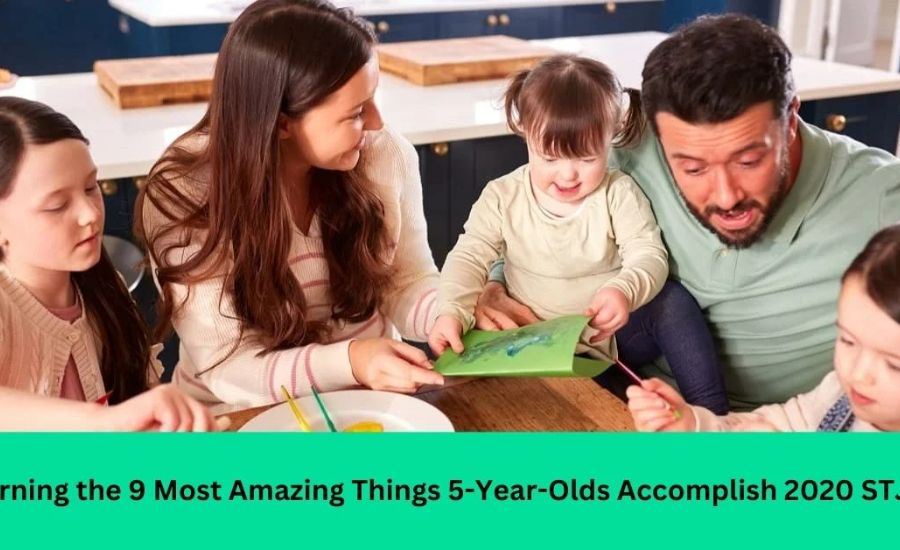
At age five, children reach important developmental milestones that shape their future learning. Key achievements during this stage include the development of foundational math, reading, and writing skills. These abilities serve as the groundwork for academic success. During the 2020 pandemic, many schools transitioned to remote learning, and children adapted well to virtual classrooms, continuing to progress despite the challenges. Parents and educators used digital tools to support children’s growth in literacy and numeracy, ensuring they stayed on track. Recognizing these milestones helps provide the right guidance to nurture a child’s physical, cognitive, and emotional development.
Cognitive Development
At age five, children experience rapid cognitive development, absorbing new information quickly and expanding their understanding of the world. At this stage, they begin to grasp abstract concepts like time and cause-and-effect relationships, while their problem-solving skills improve significantly. Their language abilities also advance, allowing them to express themselves more clearly and confidently.
The foundation for later, more sophisticated thinking and learning is laid at this crucial developmental stage. A child’s comprehension and communication abilities can be strengthened by parents and teachers by fostering curiosity and providing chances for inquiry, laying a solid foundation for success in social and academic contexts.
Understanding Abstract Concepts
At age five, children begin to develop a deeper understanding of abstract concepts, especially those related to time. They start distinguishing between the past, present, and future, grasping terms like “yesterday,” “today,” and “tomorrow.” This cognitive leap helps them better plan and navigate daily routines.
Along with cognitive growth, emotional intelligence begins to emerge. Five-year-olds become more aware of their own emotions and start recognizing feelings in others. This growing empathy allows them to respond with compassion, such as comforting a friend who’s upset. This emotional and social awareness plays a key role in building stronger relationships with peers.
Building Blocks of Growth: Fundamental Skills Mastered by Five-Year-Olds
Children complete significant developmental milestones that set them up for more complex learning by the time they are five years old. As their vocabulary grows quickly, they are able to articulate their ideas more clearly and construct longer, more intricate phrases.This language growth enhances their social interactions and helps them better understand their environment.
Children as young as five start to acquire fundamental math skills in addition to linguistic capabilities.They begin to understand basic addition, subtraction, and counting. These early numeracy abilities are essential because they set the stage for more sophisticated logical reasoning and problem-solving. Building confidence and laying a solid basis for future academic and personal development require this period.
The World Through Their Eyes: Grasping Abstract Concepts
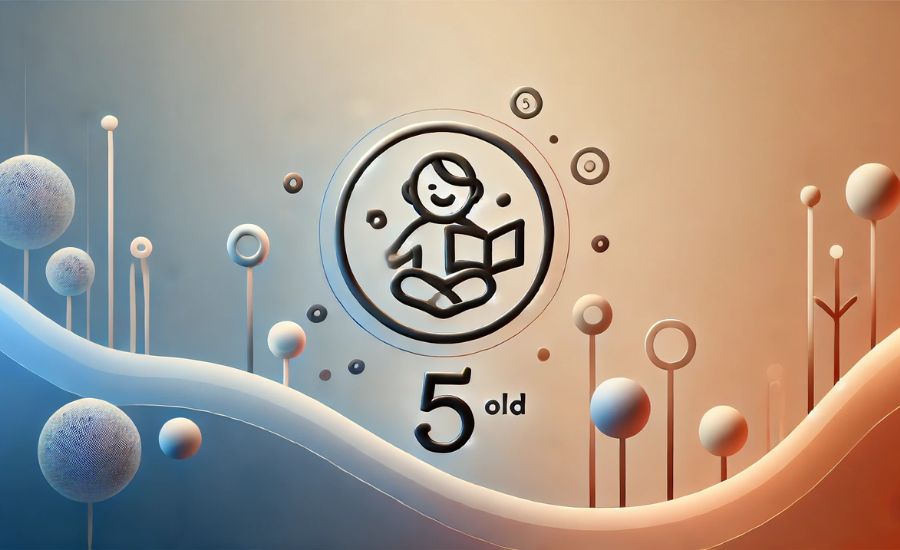
At age five, children begin to grasp more complex and abstract ideas, such as the concept of time. They start understanding the sequence of days in a week and can follow the order of events throughout the day, like knowing what comes before or after certain activities. This newfound understanding helps them create a sense of routine and structure, which is crucial for their cognitive development.
Five-year-olds also improve their capacity to identify patterns and symbols, which helps them make the connection between concrete experiences and abstract thought. They are able to gain a deeper grasp of the world around them through this cognitive shift, which improves their ability to solve problems and comprehend how things work. These developmental milestones give children the ability to interact more fully with their environment and lay a strong foundation for learning in the future.
Artistic Expression: Drawing, Writing, and Crafting
At the age of five, one of the most significant developments is the improvement of fine motor skills. These abilities enable children to handle more intricate tasks such as drawing, writing, and crafting with greater precision. Many five-year-olds become particularly interested in artistic expression, often drawing detailed pictures of people, animals, and everyday objects, reflecting their expanding creativity.
During this stage, children also begin to practice writing their names and simple words. They can practice writing letters and numbers more precisely since they have more control over writing implements like pencils and crayons. Furthermore, doing crafts, such cutting shapes with scissors or adhering things together, improves their fine motor abilities even more. These experiences lay the groundwork for future learning and growth by enhancing their confidence in both artistic and academic endeavors as well as their capacity to complete intricate tasks.
Hand-Eye Coordination: The Foundation for Future Academic Skills
Hand-eye coordination is strengthened by fine motor development and is necessary for writing, typing, and using a variety of tools in the classroom and beyond. Children who have better coordination are better able to manage physical activities and can take part in more challenging games that call for dexterity and control.
Parents can support this development by providing their kids with opportunities to practice their fine motor skills. Getting kids involved in arts and crafts, drawing, constructing blocks, and even playing with toys that require precise motions can all greatly increase their dexterity. These activities support their physical growth as well as their creativity and problem-solving abilities. By offering a range of opportunities, parents may help their kids improve their fine motor abilities, which will equip them for future academic and practical problems.
Building Resilience
The development of resilience in five-year-olds was one of their most notable accomplishments in 2020. Children shown an amazing ability to adjust to the tremendous problems brought about by the pandemic, including periods of social isolation and disturbances to routines. Using play, imagination, and their families’ support, they managed to cope with the uncertainty.
Five-year-olds were able to develop emotional resilience throughout this phase of transition, learning how to deal with unfamiliar situations and bounce back from failures. The abilities they acquired throughout this period, such flexibility and problem-solving, are critical traits that will support them in overcoming obstacles in the future. One of the most significant turning points in their early development was their 2020 resiliency, which laid the groundwork for their future progress.
Independence and Self-Reliance
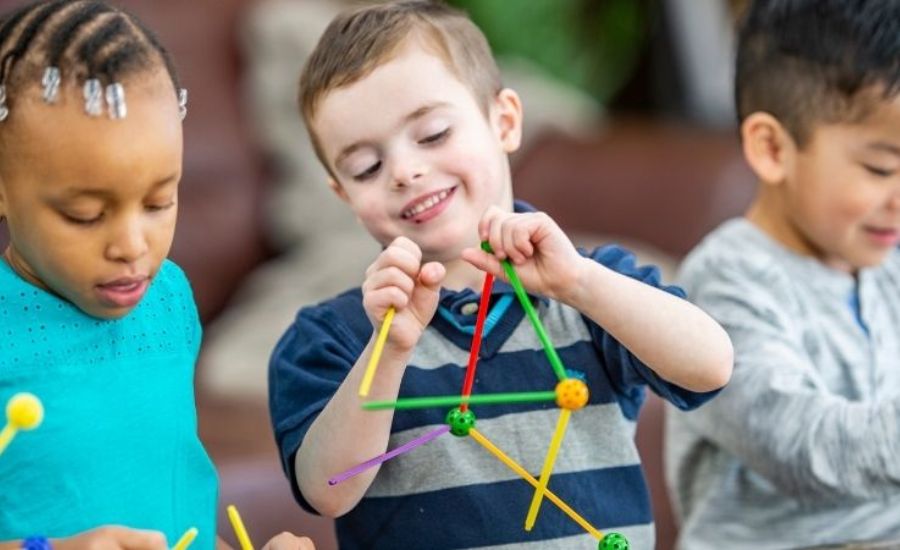
A crucial developmental period that is characterized by a rising sense of independence and self-sufficiency begins for children at age five. As kids gain more knowledge about the world, they start to voice their preferences and make decisions, developing their maturity and sense of accountability for their own wants and belongings.
Their whole development has undergone a dramatic shift as a result of their growing independence since it fosters assurance and confidence. Their sense of independence grows as they begin to take responsibility of tasks like getting dressed, tidying up after themselves, and making little decisions. This is a critical period for laying the foundation for children to become competent, confident adults who are ready to take on new tasks as they continue to study and grow.
FACT:
Cognitive Development: Five-year-olds rapidly expand their cognitive abilities, allowing them to understand abstract concepts, such as time and cause-and-effect relationships.
Language Skills: At this age, children develop a richer vocabulary, enabling them to form more complex sentences and express themselves more clearly.
Basic Math Skills: Five-year-olds begin to grasp fundamental math concepts, including basic addition, subtraction, and counting.
Understanding of Time: They start to comprehend the sequence of days and can distinguish between past, present, and future, enhancing their ability to create routines.
Fine Motor Skills: Children improve their fine motor skills, allowing them to draw, write their names, and engage in crafting activities with greater precision.
Hand-Eye Coordination: This development is crucial for future academic tasks, such as writing and using various tools.
Artistic Expression: Five-year-olds often show a keen interest in artistic activities, creating detailed drawings and practicing their writing skills.
Resilience: In 2020, children demonstrated remarkable resilience, adapting to the challenges posed by the pandemic and learning to cope with uncertainty through play and family support.
Independence: This age marks a growing sense of independence, as children start taking responsibility for their belongings and making their own decisions.
FAQs:
- What are the key developmental milestones for five-year-olds?
- Five-year-olds typically master fundamental skills such as early math, reading, and writing, showing significant advancements in cognitive, physical, and emotional development.
- How do five-year-olds demonstrate cognitive development?
- At this age, children rapidly expand their cognitive abilities, allowing them to understand abstract concepts, such as time and cause-and-effect relationships, and they become better problem solvers.
- What language skills do five-year-olds develop?
- Five-year-olds develop a richer vocabulary, enabling them to form more complex sentences and express themselves more clearly in conversations.
- What basic math skills do five-year-olds begin to understand?
- Children start to grasp fundamental math concepts, including basic addition, subtraction, and counting, laying the foundation for future academic success.
- How do five-year-olds comprehend the concept of time?
- They begin to understand the sequence of days and can distinguish between past, present, and future, which enhances their ability to create routines and manage daily activities.
- What improvements do five-year-olds make in fine motor skills?
- Children improve their fine motor skills, allowing them to draw, write their names, and engage in crafting activities with greater precision.
- How does hand-eye coordination develop in five-year-olds?
- This development is crucial for future academic tasks, such as writing and using various tools, and is strengthened through fine motor activities.
- What role does artistic expression play in a five-year-old’s development?
- Five-year-olds often show a keen interest in artistic activities, creating detailed drawings and practicing their writing skills, which enhances their creativity and self-expression.
- How did the pandemic affect the resilience of five-year-olds in 2020?
- In 2020, children demonstrated remarkable resilience by adapting to the challenges posed by the pandemic, coping with uncertainty through play and family support.
- What signs of independence do five-year-olds exhibit?
- This age marks a growing sense of independence, as children start taking responsibility for their belongings and making their own decisions, fostering confidence and self-reliance.
Summary:
At age five, children reach significant developmental milestones across physical, cognitive, and emotional domains, laying the groundwork for future growth. Key achievements include:
- Mastering Fundamental Skills: Children develop early math, reading, and writing abilities, establishing a foundation for academic success.
- Cognitive Development: They rapidly expand their cognitive skills, understanding abstract concepts like time and cause-and-effect relationships.
- Understanding Abstract Concepts: Children begin to comprehend the sequence of days, aiding in the development of routines and planning.
- Artistic Expression: Enhanced fine motor skills allow for improved drawing, writing, and crafting, fostering creativity.
- Hand-Eye Coordination: Improved coordination is essential for academic tasks, leading to better dexterity in physical activities.
- Building Resilience: In 2020, children demonstrated remarkable adaptability in response to the challenges of the pandemic, using play and family support to cope with uncertainty.
- Independence and Self-Reliance: A growing sense of independence emerges as children take responsibility for their belongings and make their own decisions, boosting confidence.
These accomplishments are crucial for their overall development, equipping them with essential skills and emotional resilience for future challenges.
For more Information About Education visit francherway
